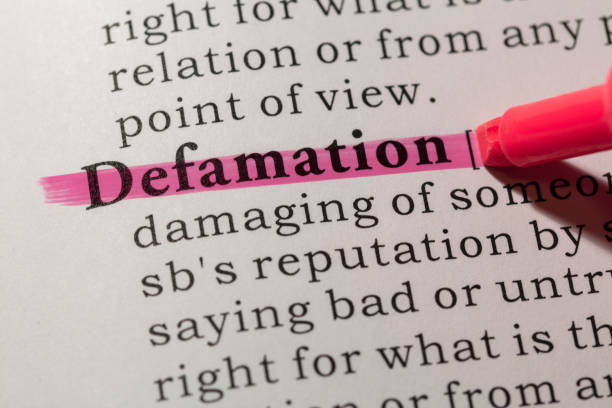Intellectual Property Protection in Malta: Safeguarding Your Innovations
Intellectual property (IP) protection is a crucial aspect of modern economies, serving as a legal framework that safeguards the creations of the mind. This encompasses inventions, literary and artistic works, designs, symbols, names, and images used in commerce. The primary objective of IP protection is to encourage innovation and creativity by granting creators exclusive rights to their work for a specified period.
This exclusivity not only incentivizes individuals and businesses to invest time and resources into developing new ideas but also fosters an environment where creativity can flourish. In essence, intellectual property rights (IPR) provide a mechanism for creators to control the use of their creations, ensuring that they can reap the benefits of their hard work. Without such protections, there would be little motivation for individuals to innovate, as their ideas could be easily copied or exploited by others without compensation.
The concept of IP protection is rooted in the belief that creators deserve recognition and financial rewards for their contributions to society. This principle is particularly relevant in a globalized economy where ideas can be disseminated rapidly across borders, making robust IP laws essential for maintaining competitive advantages.
Types of Intellectual Property in Malta
Patents: Protecting Inventions
Patents are granted for inventions that provide a new solution to a technical problem. In Malta, a patent gives the inventor exclusive rights to exploit their invention for a period of 20 years from the filing date. This exclusivity allows inventors to prevent others from making, using, or selling their invention without permission. The process of obtaining a patent involves rigorous examination to ensure that the invention meets specific criteria, including novelty, inventive step, and industrial applicability.
Trademarks: Protecting Brand Identity
Trademarks protect symbols, names, and slogans used to identify goods or services. In Malta, trademark registration provides the owner with exclusive rights to use the mark in commerce, preventing others from using similar marks that could cause confusion among consumers. Trademarks can be renewed indefinitely as long as they are in use and the renewal fees are paid. This form of IP is vital for businesses as it helps establish brand identity and consumer trust.
Copyrights and Industrial Designs: Protecting Creative Works and Product Designs
Copyrights protect original works of authorship, including literature, music, art, and software. In Malta, copyright protection is automatic upon the creation of a work and does not require registration. However, registering a copyright can provide additional legal advantages in case of disputes. Copyright typically lasts for the life of the author plus 70 years, ensuring that creators retain control over their works for an extended period. Industrial designs refer to the aesthetic aspect of products, including their shape, color, and texture. In Malta, industrial design protection allows creators to safeguard the visual design of their products for up to 25 years. This type of IP is particularly important in industries where product appearance plays a significant role in consumer choice.
The Importance of Intellectual Property Protection
The significance of intellectual property protection cannot be overstated in today’s knowledge-driven economy. IP rights serve as a cornerstone for fostering innovation and economic growth by providing creators with the necessary tools to protect their inventions and creative works. By ensuring that inventors and artists can benefit from their contributions, IP protection encourages further investment in research and development across various sectors.
Moreover, strong IP protection contributes to job creation and economic stability. Industries that rely heavily on intellectual property—such as technology, pharmaceuticals, and entertainment—are often among the fastest-growing sectors in an economy. For instance, according to a report by the European Union Intellectual Property Office (EUIPO), IP-intensive industries accounted for approximately 39% of total economic activity in the EU in 2019.
This statistic underscores the vital role that intellectual property plays in driving economic performance and enhancing competitiveness on both national and international levels. In addition to economic benefits, intellectual property protection also promotes cultural diversity and artistic expression. By safeguarding the rights of creators, societies can enjoy a rich tapestry of cultural products ranging from literature to music and visual arts.
This diversity not only enriches our lives but also fosters social cohesion by allowing different voices and perspectives to be heard. The protection of IP thus serves not only economic interests but also cultural ones, ensuring that creativity continues to thrive.
How to Safeguard Your Innovations in Malta
Safeguarding innovations in Malta requires a strategic approach that encompasses various legal mechanisms tailored to specific types of intellectual property. The first step for any inventor or creator is to conduct thorough research to determine which type of IP protection is most suitable for their work. This involves understanding the nature of the innovation—whether it is an invention, brand name, artistic work, or design—and identifying the appropriate legal avenues for protection.
For inventions, applying for a patent is essential. Inventors should prepare a detailed patent application that includes claims defining the scope of protection sought. Engaging with a patent attorney can be beneficial during this process to ensure that all technical details are accurately represented and that the application meets all legal requirements.
Once granted, it is crucial for patent holders to monitor potential infringements actively and enforce their rights if necessary. For trademarks, businesses should conduct comprehensive searches to ensure that their proposed marks do not infringe on existing trademarks. Once a unique mark is identified, registering it with the Maltese Intellectual Property Office (IPO) provides legal backing against unauthorized use by competitors.
Regular monitoring of the marketplace for potential infringements is also advisable to maintain brand integrity. Copyright holders should keep meticulous records of their works’ creation dates and any subsequent modifications. While copyright protection is automatic in Malta, registering works with relevant authorities can provide additional legal leverage in disputes.
For industrial designs, filing an application with the IPO ensures that the aesthetic aspects of products are protected against imitation.
Legal Framework for Intellectual Property Protection in Malta
Malta’s legal framework for intellectual property protection is robust and aligns with European Union directives and international treaties. The country has implemented various laws governing different types of intellectual property rights, ensuring compliance with global standards while catering to local needs. The primary legislation governing patents is the Patents and Designs Act (Chapter 417), which outlines the procedures for obtaining patents and protecting industrial designs.
The Trademarks Act (Chapter 416) governs trademark registration and enforcement in Malta. This legislation provides clear guidelines on how trademarks can be registered, maintained, and enforced against infringement. Additionally, Malta is a member of several international treaties related to intellectual property, including the Paris Convention for the Protection of Industrial Property and the Berne Convention for the Protection of Literary and Artistic Works.
These treaties facilitate cooperation between member states and provide a framework for mutual recognition of IP rights. Copyright protection in Malta is primarily governed by the Copyright Act (Chapter 415), which outlines the rights granted to authors and creators over their works. This legislation ensures that creators have exclusive rights to reproduce, distribute, and publicly display their works while also providing provisions for moral rights that protect an author’s reputation.
Furthermore, Malta’s membership in the European Union has led to harmonization with EU regulations concerning intellectual property rights. This alignment enhances legal certainty for businesses operating within Malta and across Europe while providing access to broader markets.
Challenges and Future Trends in Intellectual Property Protection in Malta
Enforcement Challenges and Lack of Confidence
This situation can lead to a lack of confidence among creators who may feel that their rights are not adequately protected. As a result, creators may be hesitant to invest in innovative ideas, which can hinder economic growth and development.
Keeping Pace with Technological Advancements
Another challenge lies in keeping pace with rapid technological advancements that continuously reshape how intellectual property is created and consumed. The rise of digital platforms has made it easier for works to be copied and distributed without authorization, leading to increased instances of copyright infringement.
Future Trends and Opportunities
As such, there is an urgent need for legislative updates that address these emerging issues while balancing the interests of creators with those of consumers. Looking ahead, future trends in intellectual property protection in Malta may include greater emphasis on digital rights management as more creative works transition online. The integration of blockchain technology could also play a role in enhancing transparency and traceability in IP transactions. Additionally, there may be increased collaboration between government agencies and private sectors to raise awareness about IP rights among businesses and individuals alike.







